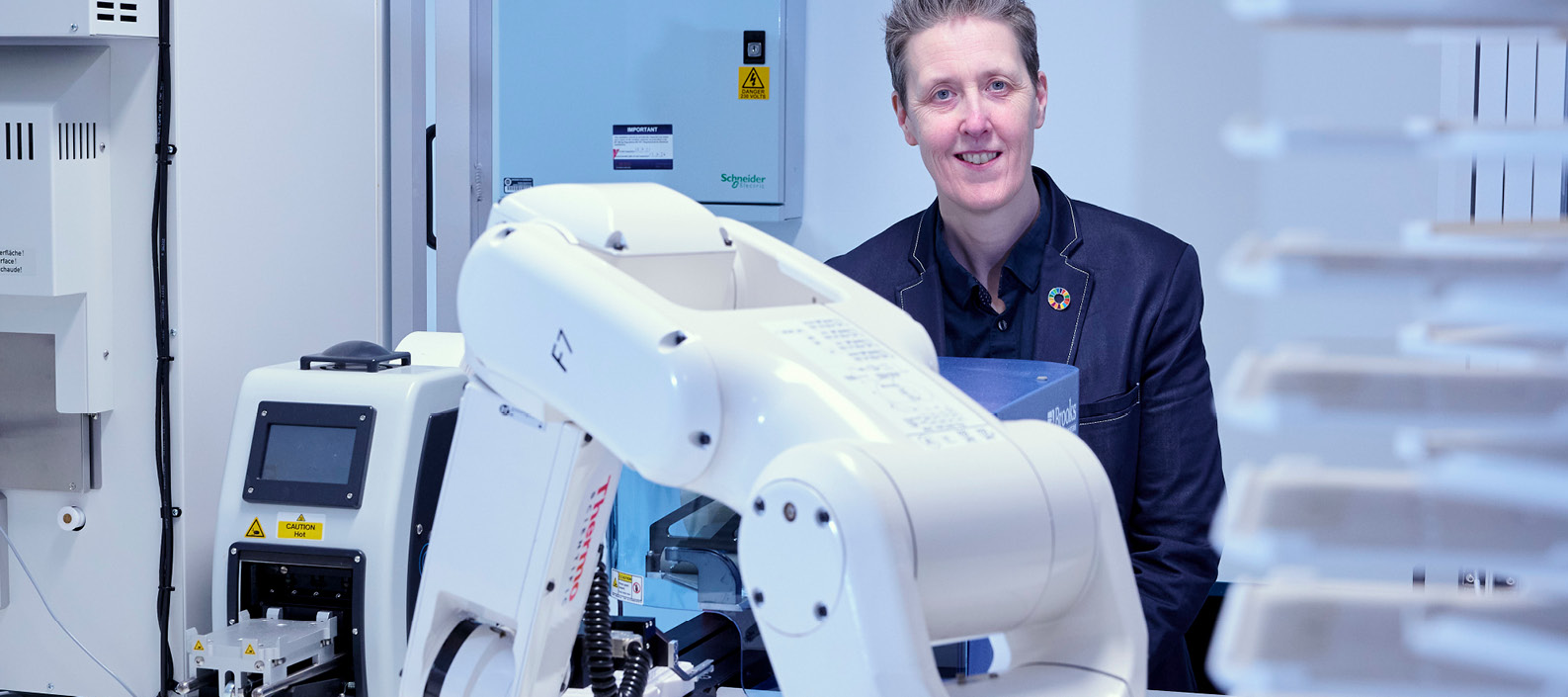
Professor Susan Rosser is Director of the Edinburgh Mammalian Synthetic Biology Research Centre and Co-director of the Edinburgh Genome Foundry for DNA synthesis and assembly. She is also Chair in Emerging Technologies, designed to support global research visionaries. Read about Susan’s greatest hopes and fears in her own words and find out more about her unusual but very useful strengths.
Ten questions with Professor Susan Rosser
1. What does innovation mean to you?
Something new and useful
2. What is your greatest failure?
I don’t think in terms of success and failure. I have “failed” at many things during my career – my A-levels first time round, a year of my undergraduate degree, and many experiments didn’t work out, but ultimately it is just part of the process.
3. What is your greatest success?
Again, I don’t think in those terms. Success is whatever allows you to go on to the next interesting thing and that often isn’t necessarily obvious or linear.
4. What is your greatest fear?
That the rise of misogynistic, homophobic, racist, right-wing, populism-fuelled autocracies will make Margaret Atwood’s The Handmaid’s Tale seem predictive and we will all end up living in some sort of Gilead. Oh, and that political short-termism, expediency and greed will irreparably screw the planet up.
5. What is your favourite book?
That is an impossible question. I really admire Ali Smith’s writing. I also like poetry for example Paul Farley’s collection “Tramp in Flames”. One book that has stayed with me is The Hitchhiker’s Guide to the Galaxy for many reasons but I was particularly reminded of it when I got my first iPhone and was completely blown away by having that incredible access to information in my back pocket.
6. What would your friends say your greatest strengths and weaknesses are?
The results of the questionnaire are in:
Strengths – always carrying extra handy tissues in my pockets (my mother taught me well) and an impressive ability to spot a just about to be vacated table in a crowded bar.
Weaknesses – getting hangry and indecisive if not fed at regular intervals and a poor capability for recognising people’s faces which can lead to some very confusing conversations.
7. What is the most important thing to you?
Family and friends obvs.
8. Is there any advice you wish someone had given you?
Not really. I have learned a lot from many fantastic people but by observation rather than advice.
9. What future innovation would you like to see happen in your lifetime?
I would like to see safe, effective and affordable cell and gene therapies routinely used in the clinic to treat challenging currently intractable diseases.
10. What is your greatest hope?
I am an optimist (despite my answer to the greatest fear question). I think you have to be as a research scientist. So my greatest hope is that the technologies we are developing now in engineering biology will have a huge impact on solving problems in medicine and climate change…and that Wales will eventually win the rugby world cup.
Feeling inspired?
- Start your innovation journey with an EI event or training course
- Keep up to date with the latest opportunities in our newsletter Impact Insider
- Contact Us to explore the best options for you with an EI expert

